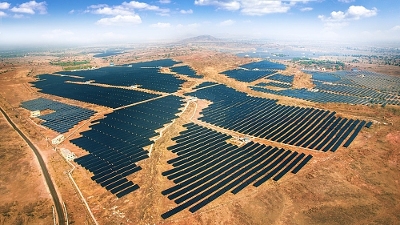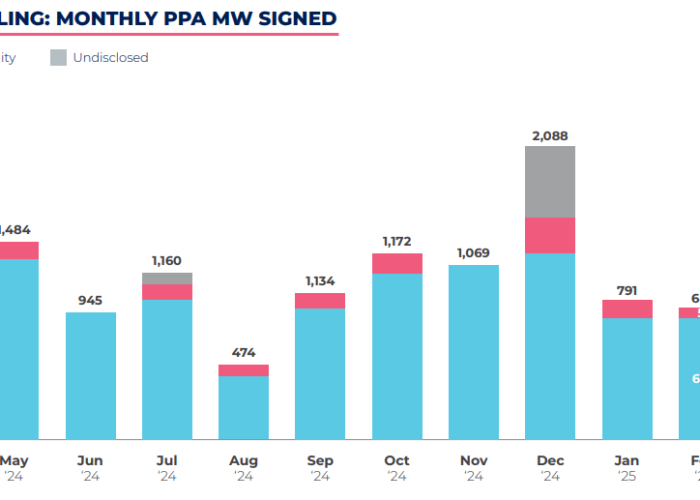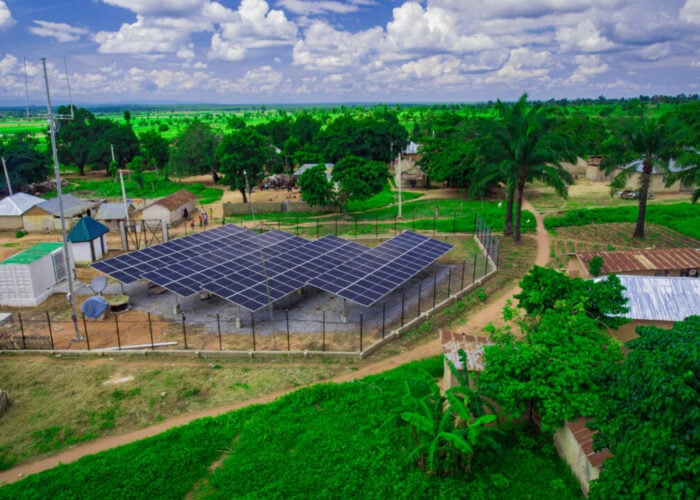
Azure Power has seen its pipeline of interstate transmission solar in India swell by another 2GW after a greenshoe option in an existing contract with Solar Energy Corporation of India (SECI) was exercised.
The independent power producer confirmed yesterday (23 July 2020) that it had received a letter of award for 2GW of additional ISTS solar power, acting as an extension on a previously-awarded contract for the same capacity.
Unlock unlimited access for 12 whole months of distinctive global analysis
Photovoltaics International is now included.
- Regular insight and analysis of the industry’s biggest developments
- In-depth interviews with the industry’s leading figures
- Unlimited digital access to the PV Tech Power journal catalogue
- Unlimited digital access to the Photovoltaics International journal catalogue
- Access to more than 1,000 technical papers
- Discounts on Solar Media’s portfolio of events, in-person and virtual
Or continue reading this article for free
Azure will now deliver 4GW of utility-scale solar to be developed anywhere in India, under 25-year tariffs with SECI at a price of INR2.92 (US$0.039) per kilowatt-hour.
The deployment of that pipeline is to be staggered in annual phases of 1GW. The first project commissioning is slated for 2022, with Azure expecting full commissioning of the 4GW capacity under contract by 2025.
Azure also noted that the power purchase agreements signed with SECI waive all ISTS transmission charges and provide greater protections from curtailment.
However the contract has required Azure to enter into a 500MW cell and module manufacturing capacity commitment in India, and the company has confirmed it intends to partner with an existing domestic manufacturer to satisfy that stipulation.
Ranjit Gupta, chief executive officer at Azure Power, said the award of a sizeable pipeline to be developed over an extended period of time would allow the company to drive greater efficiencies from within its project execution and operation teams.
“This project is also a significant step towards India’s commitment to battle climate change and to reduce carbon emissions signed under the Paris Climate Change Agreement. Partnering with domestic manufacturers of solar PV modules in India as part of the project will help propel India’s solar cell and module manufacturing sector into becoming a global leader,” he said.






